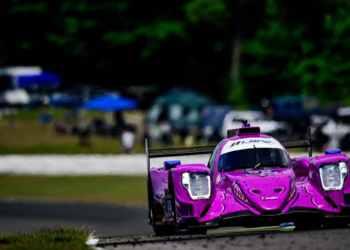With the news that front and rear inter-connected (FRIC) suspension systems will be banned from the German Grand Prix unless unanimous support can be sought, McLaren’s Eric Boullier admits it came as a surprise.
The FIA has taken the decision that FRIC systems are illegal and has therefore told the teams that they must be removed for the next event in less than a fortnight.
However, should all 11 teams agree to delay the ban, the FIA will do so until 2015 – however it isn’t often the teams agree on something unanimously.
Boullier admitted they were aware of the FIA’s interest in the systems, but weren’t aware that they might be banned as almost all of the teams use it to some degree.
“It came as a surprise,” he said on Wednesday. “It’s obviously not come from any team action it is an FIA action. We had been warned over the weekend that something could come out of this. Obviously we got this technical directive from Charlie Whiting.
“I think all of the teams on the grid have this kind of suspension system which is connecting a little bit the different [ends] to better use the dynamics of the vehicle. I think some teams might have been extreme, which is maybe why the FIA is questioning the legality of this system.”
It’s reckoned that a handful of teams have very complex versions, particularly Mercedes, and there is talk that the ban could seriously harm the performance advantage the W05 holds.
McLaren however don’t believe it will hurt the MP4-29’s performance to the same level.
“I don’t know the secrets of designs of the other teams; I think in most of the teams it would not be a game-changer. There is maybe a couple of teams who have been extreme and who could potentially be in trouble to switch back to a non-connected system.
“In the case of McLaren we are quite relaxed to be honest,” he said. “So we don’t see any issue with that for us. I don’t think there will be too many disturbances for the rest of the season. Even if we don’t like any technical or sporting changes during the season but there is maybe some reason behind why the FIA wants to do it.”






